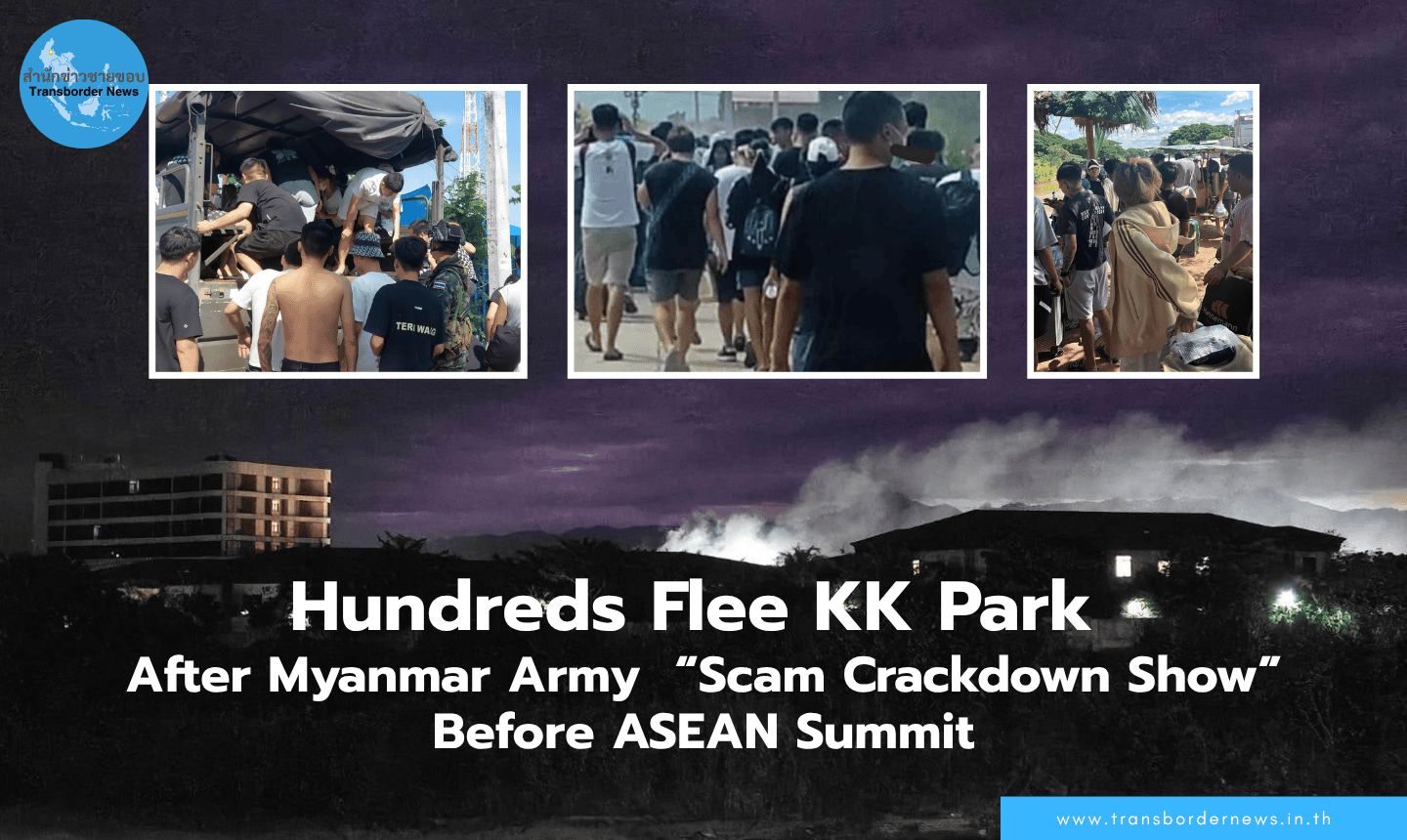“I love Thailand. I know I’m Cambodian — I was born in Cambodia. That’s my homeland. But Thailand has given me the means to live and support my family,” said a Cambodian migrant worker who has lived and worked in Thailand for over ten years.
She now works with a foundation, but started out laboring at a fish raft in Chanthaburi Province, earning just 100 baht a day. Originally from Komreang District in Battambang Province, she has spent over a decade contributing to Thailand’s workforce.
“Now, this border conflict is all over social media. People are attacking each other online — arguing, blaming, degrading one another. We’re neighbors. We came here to work. I’ve seen how workers — both Cambodian and Thai — are affected. Even Thai workers in Cambodia are suffering from this,” she said, clearly pained by the rising tensions between the two nations.
She hopes those in power will choose dialogue over escalation.
“We’re caught in the middle. We don’t want this to become a labor issue. We don’t want war. We don’t want to fight,” she said. She acknowledged that in Cambodia, most citizens don’t have much say in politics.
“We can’t choose our leaders. We can’t criticize them. In Cambodia, if you speak out, you can be imprisoned. The people’s voices are silenced,” she added.
Asked about reports that the Cambodian government may evacuate workers, she responded: “If we go back and there are good jobs and fair wages, it’s up to each worker to decide. No one should force us.”
“If they can pay wages similar to Thai employers, that would be great — we wouldn’t be in conflict like this. No need for insults,” she said.
Living in Thailand for over ten years, she said she has met many kind Thai people who treat her like family — something that makes her proud. She never thought this border issue would spiral out of control.
“It’s making people from both countries hate each other — even though it’s not the people who are fighting. The governments are the ones exchanging insults. Ordinary people like us don’t feel that way. The good Thai people I know tell me I came here legally, that I’ve never caused trouble, that we’re like siblings and they won’t abandon me. They speak kindly to me.”
But the conflict has had real consequences.
“Friends who work in factories called me. Some said they weren’t even allowed to eat. Some were suddenly fired. Big factories in Rayong laid off Cambodian workers without explanation. Some employers stopped paying wages and even called immigration to have workers deported. Others who were sick and went to the hospital with health cards were treated badly by some nurses. It really hurt,” she said.
She admits she feels sad when insulted by Thai people.
“We’re all human. We all die in the end. Why can’t we see each other as fellow human beings?”
“Why discriminate based on nationality or race? We didn’t start this conflict. We don’t know anything about it. I feel so sad. I want to tell my fellow Cambodian workers: do your best. If the Thai Ministry of Labor or the Prime Minister doesn’t ask us to leave, then stay, do your job, keep quiet. We need to earn a living. Keep working, keep fighting.”
When asked if she had anything to say to Thai people who may feel hatred toward Cambodians because of the border dispute, she replied without hesitation:
“Please stop insulting us. Please stop hating us. If you still hate us, I can’t stop you. But I thank the many Thai people who love us — we love them back like siblings.”
“I’ve been in Thailand for over ten years. I have no desire to return to Cambodia — even if Prime Minister Hun Manet promises to guarantee jobs and match Thai wages. I don’t want conflict. But it seems like this problem won’t go away. Each side wants to win. Are we going to live with this problem forever? If so, I don’t know how I’ll go on.”
She sounded confused and anxious about the deepening dispute.
“Please don’t hate us,” she repeated, her voice trembling with emotion. “Since this started, I’ve been so sad. I truly love the Thai people and Thailand. Someone once asked me why I don’t just go back to Cambodia. But I thought, I have to fight. If I want to stay, I have to hold on. Eventually, things will quiet down.”
Whether the border dispute escalates or finds a resolution, the small voice of this Cambodian woman working in Thailand echoes a simple but powerful plea to Thai society:
“Please don’t hate us.”
see original Thai article https://transbordernews.in.th/home/?p=43014





